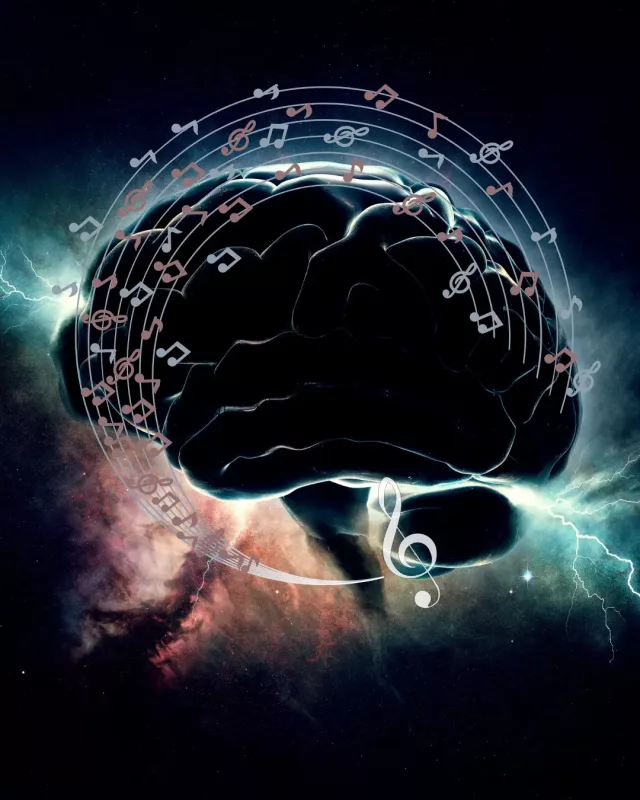Music is a universal language that speaks to the depths of our souls. It has the power to transport us to different times and places, to evoke emotions, and to connect us with others. But music is more than just a form of entertainment or expression; it has a profound impact on our brains and overall well-being. In this article, let us explore the fascinating relationship between music and the brain, delving into the neurological and psychological effects of music, how it shapes our cognitive abilities, and the therapeutic potential it holds. Come on this journey to uncover the secrets of music’s influence on the human brain.
The Intricate Dance of Brain and Music
The human brain is a masterpiece of complexity, with billions of neurons intricately connected to form neural networks. These networks are responsible for our thoughts, emotions, and behaviors. And when it comes to music, the brain engages in a symphony of activity, tapping into various regions and systems to process and respond to auditory stimuli.
The Neurological Wonders of Music
Research has shown that listening to music activates multiple areas of the brain, including the auditory cortex, which processes sound, and the limbic system, which regulates emotions. But music doesn’t stop there; it also engages motor regions, language centers, and even the reward system, releasing feel-good neurotransmitters like dopamine. This intricate dance of brain regions working in harmony allows us to experience the joy, pleasure, and emotional depth that music can bring.
The Power of Musical Training
While simply listening to music can have profound effects on the brain, engaging in musical training takes the relationship between music and the brain to a whole new level. Numerous studies have shown that learning to play an instrument or sing leads to structural and functional changes in the brain. For example, musicians have been found to have larger gray matter volume in areas associated with auditory processing, motor control, and cognitive processing. This suggests that musical training shapes the brain, enhancing various cognitive functions such as attention, memory, and executive functions.
Music, Memory, and Emotion: A Harmonious Trio
Our memories and emotions are deeply intertwined with music. Whether it’s a nostalgic melody that brings back memories of our youth or a powerful song that stirs our emotions, music has a unique ability to evoke vivid recollections and elicit intense feelings. This phenomenon is not just subjective; there is scientific evidence to support the strong connection between music, memory, and emotion.
The Soundtrack of Our Lives
Have you ever noticed how a particular song can transport you back in time, evoking memories of specific people, places, or events? This is because music has a direct pathway to our memories. The hippocampus, a region crucial for memory formation and retrieval, interacts closely with the auditory cortex during music processing. As a result, when we hear a familiar song, the brain activates the associated memories, allowing us to relive the past in vivid detail.
Emotionally Charged Harmonies
Music has the power to touch our hearts and move us to tears or laughter. This emotional impact is due to the interaction between music and the limbic system, which plays a key role in regulating emotions. When we listen to emotionally charged music, the brain releases neurotransmitters like serotonin and oxytocin, which are associated with positive emotions and social bonding. This explains why music can have such a profound effect on our mood and emotional well-being.
Music and Cognitive Abilities: Striking the Right Chord
Beyond its emotional and memory-enhancing effects, music also has a remarkable impact on our cognitive abilities. From boosting attention and focus to enhancing problem-solving skills, music has the power to unlock our intellectual potential. Let’s explore some of the ways music influences our cognitive abilities.
The Mozart Effect: Myth or Reality?
You may have heard of the “Mozart effect,” the idea that listening to classical music, particularly Mozart’s compositions, can boost intelligence and spatial-temporal reasoning. While the initial claims of this phenomenon were overstated, there is evidence to suggest that music, including Mozart’s, can temporarily enhance cognitive performance. The complex and structured nature of classical music may engage and stimulate the brain, promoting cognitive flexibility and problem-solving abilities.
Rhythm and Attention: Finding the Beat
Have you ever noticed how music can capture your attention and help you focus? This is because rhythm, a fundamental element of music, has a direct impact on our attentional processes. Research has shown that listening to rhythmic music improves attention and concentration, making it an effective tool for studying or engaging in tasks that require sustained focus. The rhythmic patterns in music synchronize with our brainwaves, enhancing neural coherence and facilitating information processing.
Musical Training and Executive Functions
Executive functions, a set of cognitive processes responsible for goal-directed behavior and self-control, are crucial for academic success and overall cognitive abilities. And guess what? Musical training has been found to enhance executive functions. Learning to play an instrument or sing requires discipline, attention to detail, and the ability to multitask. These skills transfer to other domains, improving our ability to plan, organize, and regulate our behavior. So, if you’re looking to boost your cognitive abilities, picking up an instrument might be just the thing!
The Healing Power of Music: Therapeutic Harmonies
Music has been used as a form of therapy for centuries, harnessing its unique properties to promote healing and well-being. From reducing stress and anxiety to improving motor skills and promoting social connections, music therapy offers a holistic approach to healing. Let’s delve into the therapeutic potential of music and how it can benefit various aspects of our health.
Music Therapy: A Symphony of Healing
Music therapy is a specialized field that utilizes music as a therapeutic tool to address physical, emotional, and cognitive needs. Trained music therapists work with individuals of all ages and backgrounds, employing various techniques such as listening to music, playing instruments, singing, and songwriting. The goal is to enhance well-being, improve communication, and facilitate emotional expression.
Soothing the Soul: Music and Stress Reduction
In our fast-paced and stressful world, finding effective ways to relax and unwind is essential for our mental and physical health. Music offers a powerful antidote to stress, helping us find solace and inner peace. Research has shown that listening to calming music can reduce stress hormone levels, lower blood pressure, and promote relaxation. So, the next time you’re feeling overwhelmed, let the soothing melodies wash over you and let the stress melt away.
Movement and Music: The Dance of Rehabilitation
Music has a unique ability to engage our motor system and facilitate movement. This makes it an invaluable tool for rehabilitation and physical therapy. Whether it’s using rhythmic cues to improve gait in individuals with Parkinson’s disease or incorporating music into exercise routines, music can enhance motor skills, coordination, and balance. So, put on your favorite tunes and let the rhythm guide your body as you embark on your journey to physical wellness.
Music as Social Glue: Connecting Through Melodies
Human beings are social creatures, and music has long been used as a means of connecting with others. Whether it’s singing together in a choir, playing in a band, or simply sharing musical experiences, music has the power to foster social connections and create a sense of belonging. This is particularly relevant in the context of music therapy, where group sessions provide opportunities for individuals to interact, express themselves, and form meaningful relationships.
The Future of Music and Brain Research: Unlocking the Full Potential
While we have made significant strides in understanding the relationship between music and the brain, there is still much to discover. Ongoing research is shedding light on the intricate mechanisms through which music influences our neural circuits and cognitive abilities. Additionally, advancements in technology, such as brain imaging techniques, are allowing scientists to peer deeper into the brain and unravel the mysteries of music’s impact.
Music and Neuroplasticity: Rewiring the Brain
Neuroplasticity, the brain’s ability to reorganize and form new connections, is a fundamental principle that underlies learning and skill acquisition. Music has been shown to harness the power of neuroplasticity, shaping our brains and facilitating cognitive development. Understanding the mechanisms through which music promotes neuroplasticity can pave the way for innovative interventions for various neurological and cognitive disorders.
Personalized Music Therapy: Tailoring the Experience
As we delve deeper into the field of music therapy, researchers are exploring the concept of personalized music interventions. By taking into account an individual’s musical preferences, emotional needs, and cognitive abilities, therapists can create tailored music experiences that maximize therapeutic benefits. This personalized approach holds great promise for optimizing the effectiveness of music therapy and improving outcomes for individuals with a wide range of conditions.
From Brain Training to Brain Harmonization
The emerging field of neurofeedback is revolutionizing the way we interact with our brains. By providing real-time feedback on brain activity, individuals can learn to regulate their brainwaves, promoting optimal functioning and well-being. Music is being integrated into neurofeedback protocols, offering a harmonious and engaging way to train the brain. This innovative approach holds the potential to enhance cognitive abilities, reduce symptoms of neurological disorders, and promote overall brain health.
Conclusion
As we conclude our exploration of music and the brain, one thing is abundantly clear: music is more than just a pleasant pastime; it is a powerful force that shapes our brains, enhances our cognitive abilities, and promotes our well-being.







0 Comments